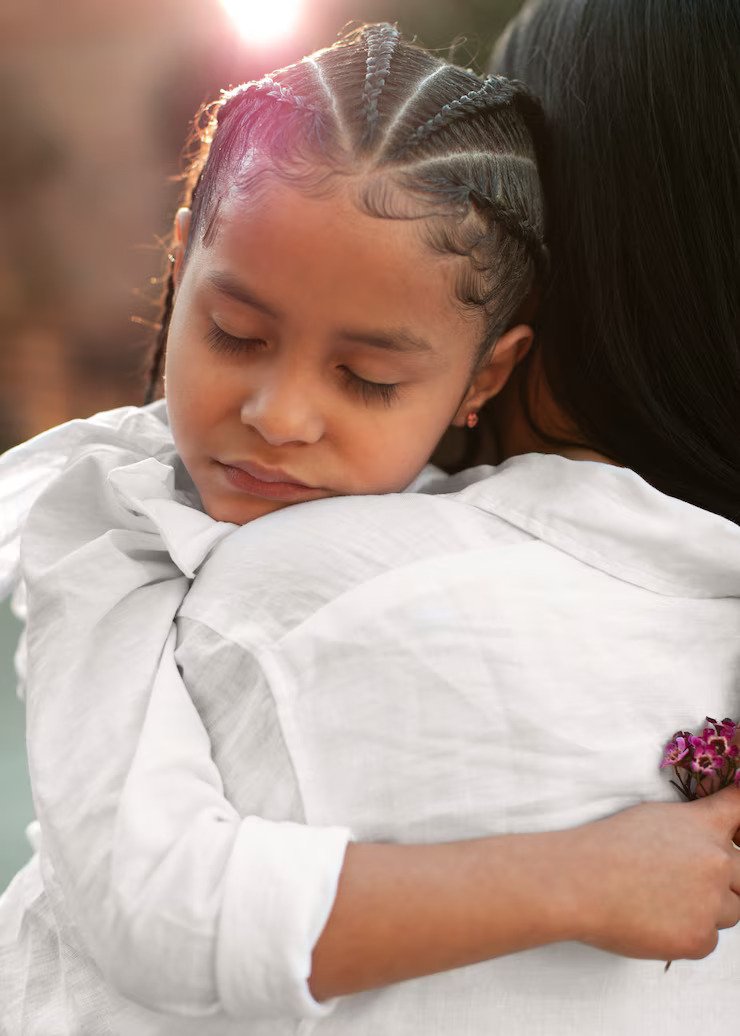Hannah, the mother of one of the most powerful prophets of God, not only in Israel but in all the world. She was the mother of Samuel, the same Samuel raised in the temple under Eli’s watch.
Hannah was one of those women who, after marriage, had dreamed of children, only to be rudely shocked by the pain of waiting. Year after year, she prayed, she asked, she believed. Until finally, God answered her through the words of His servant, the priest Eli.
Scripture doesn’t explicitly spell out her role in raising Samuel, but we can infer a lot. From her trust in God to give her a child, to her vow to dedicate him back to the Lord, to her integrity in fulfilling that vow, and to her yearly visits after he was handed over, we see a woman whose heart was in the right place with God. I believe she wasn’t a passive participant in Samuel’s life; she was as involved as she could be.
The Power of the Formative Years
In Jewish culture, weaning happened much later than what we’re used to now. It wasn’t a small milestone. It was celebrated with a feast, like in Genesis 21:8, where Abraham held a feast the year Isaac was weaned. Scholars say children were typically weaned between 2 and 5 years old in bible days. While 5 may feel late to us, 3 is very plausible, especially for babies with smaller stature, which makes it less awkward for mothers to breastfeed in public.
I personally weaned my first son at an age you’d probably consider “too late.” But I had no issue with it. As long as he wanted to be breastfed and it didn’t bother me, I allowed it. I remember those days, because he was quite big, people were often alarmed when they saw me nurse him in public. He stopped a little after two, right around when I conceived his younger brother. That’s when I truly started to believe those who say that the taste of breastmilk changes during pregnancy and children can taste the difference.
That being said, it’s not strange that children in biblical times were weaned at 3 or 4. By this age, a child can already be filled with the knowledge of God and maybe even know Him personally. This is why, if you’ve ever had a sit-down with me about children, you’ll know I’m a strong believer in not sending children to school before age three (four, if possible). These first years are not just developmental, they’re foundational. They’re the years you can saturate them with God’s Word and with your love. They can pray, they can sing, they can worship. They can listen to Scripture, respond to it, pray in tongues, and even share visions, especially if they are expressive with words.
These are the years when a child matures in your arms, not ripped out before they’re ready. I believe the tears and reluctance to be separated before age three is nature’s way of telling us, “It’s not time. Not yet. I still need mama.” Many say, “Oh, they’ll cry and stop. They’ll get used to it.” Hmm….
Just because they can stop crying doesn’t mean they should have to.
Parents, please, do your best to make some sacrifices during those formative years, especially the sacrifice of time and presence. Even if it’s just for the first six years. By the time they start school, you’ll find more time opening up; for work, for dreams, for all the things you laid down. And you’ll realize: you didn’t lose time. You invested it. And the returns will bless you and them for a lifetime.
Back to Hannah…
Let’s assume Samuel was weaned at age 4. As she had vowed, she brought him to the temple and gave him to the Lord. That means she had at least three to four solid years to influence him spiritually.
A mother who made such a vow before she conceived, was likely already a woman of worship, reverence, and devotion to God. I imagine she saw Hophni and Phinehas, the corrupt sons of Eli during her temple visits. She would’ve known how dangerous their influence could be. So while Samuel was still with her, I believe she poured truth into him. She taught him about God, about prayer, about worship. She probably warned him about what not to imitate, and guided him toward what pleases the Lord.
At four, children are very capable of processing specific instructions and giving detailed feedback. If you ask them what happened at grandma’s house or in Sunday school, they’ll give you a full download with commentary!😅 Children are great at reporting things. So if you don’t want them saying something, don’t do it!👀
When it was time to release Samuel, she didn’t just “drop him off.” No. Scripture tells us in 1 Samuel 2:19 that she visited every year, bringing him a little robe. I can only imagine how painful it must have been to leave him, but she had made a vow. And she kept it.
I picture a mother who, seeing the environment her son was in, intensified her intercession. I see her weeping and praying, pleading with God to preserve her son in the midst of a compromised priesthood.
And we know what happened.
Samuel became a prophet whose words never fell to the ground.
A man God so honored that He made Samuel’s decrees stand.
Samuel judged Israel for decades.
He anointed their first king.
And then he anointed David, Israel’s greatest king, and the earthly forefather of Jesus Christ.
The Blessing of Surrender
Samuel thrived in the very environment where others failed, not because the environment was perfect, but because he had been surrendered to God. Right where Hophni and Phinehas were corrupted, Samuel stood out. That’s what surrender does, when it’s to God.
When we entrust our children to God, He can preserve them in the most unlikely places and raise them beyond what we could manage in our own strength. Hannah’s decision to release Samuel was a vote of trust in God’s ability to keep him and God did.
For us today, surrendering our children may not mean dropping them off at a temple (church) but it does mean asking God about everything that concerns them:
The school they should attend
The friends they keep
The place they should be raised
Even the callings they feel drawn to, especially when it calls them far from your arms
Sometimes surrender will hurt. It may mean supporting their call even when it costs us comfort, presence, or familiarity. But just like with Hannah, God can be trusted to do far more with our surrendered child than we could ever do with our held-back one.
A Word to the Mothers (and the Fathers)
Those who have laid down their time, their sleep, their comfort, who have surrendered their children on the altar of God’s purpose and said, “Lord, he’s Yours. She’s Yours.”
May we know these women.
May we be these women.
May we raise these women.
And I celebrate the fathers who have allowed their wives to make these sacrifices. Who didn’t nag them back into the workforce prematurely. Who didn’t belittle their role in the home. Who didn’t mock the work of laying godly foundations but instead recognized that raising godly children is kingdom labor, and gave room for it.
To all who are in the fields raising a godly generation, I love, celebrate and honour you! ‘You are the real MVP’ as we say in Nigeria. Well done💪🏼
Again, I would like to say:
Parents, please, do your best to make some sacrifices during the formative years of your children, especially the sacrifice of time and presence. Even if it’s just for the first six years. By the time they start school, you’ll find more time opening up; for work, for dreams, for all the things you laid down. And you’ll realize: you didn’t lose time. You invested it. And the returns will bless you and them for a lifetime.
And please remember this, dear parents: money, comfort, the best clothes and shoes all pale in comparison to the legacy of worship of Yahweh, love for Him, service to Him. These are the true riches we leave with our children.These are the legacies that outlive us






